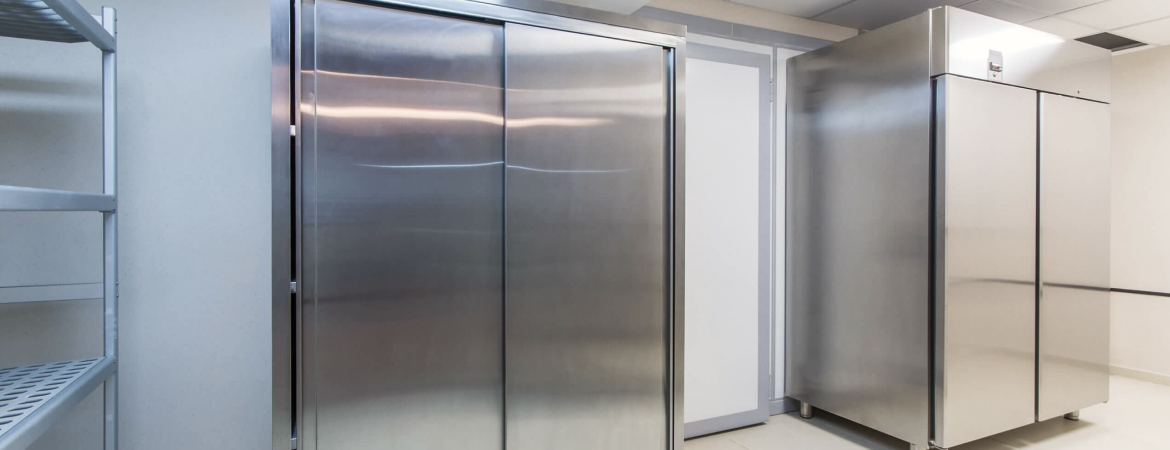Commercial Refrigerator Condenser Coil Blockages

Commercial refrigerators are essential for preserving food and beverages in restaurants, supermarkets, and other food service establishments. However, one common issue that can affect their performance is condenser coil blockages. In this blog post, we’ll explore how to diagnose, prevent, and address condenser coil blockages in commercial refrigerators, along with the causes behind them and some DIY solutions.
Identifying Condenser Coil Blockages
Condenser coil blockages can manifest in various ways, including:
- Increased temperature: If the temperature inside the refrigerator begins to rise, it could be a sign of reduced cooling efficiency due to a condenser coil blockage.
- Excessive heat: Touching the exterior of the refrigerator and feeling excessive heat is another indicator of potential blockages.
- Unusual sounds: Blockages can cause the compressor to work harder, leading to unusual noises such as rattling or buzzing.
- Visible debris: Inspecting the condenser coils for dust, dirt, or debris buildup can also help identify blockages.
Maintaining Clean Condenser Coils
Regular maintenance is key to preventing condenser coil blockages. Here are some preventive measures:
- Cleaning schedule: Implement a regular cleaning schedule to ensure the condenser coils are kept clean and free of debris. Aim to clean them at least every three to six months, depending on usage and environment.
- Use of brushes or vacuums: Use a soft-bristle brush or a vacuum with a brush attachment to gently remove dust and debris from the coils.
- Clearing surrounding area: Ensure that the area around the refrigerator is free of obstacles and clutter to allow for proper airflow to the condenser coils.
- Monitoring temperature: Regularly monitor the temperature inside the refrigerator to detect any fluctuations that could indicate cooling inefficiencies.
Understanding Why Blockages Occur
Several factors can contribute to condenser coil blockages, including:
- Dust and dirt: Over time, dust, dirt, and other airborne particles can accumulate on the condenser coils, hindering heat dissipation.
- Pet hair: In environments where pets are present, pet hair can also accumulate on the coils and contribute to blockages.
- Grease and oil: In commercial kitchens, grease and oil can become airborne and settle on the condenser coils, reducing their effectiveness.
- Poor ventilation: Inadequate ventilation around the refrigerator can trap heat and prevent proper airflow to the condenser coils, leading to blockages.
DIY Solutions: Addressing Condenser Coil Blockages
If you suspect a condenser coil blockage, here are some DIY solutions you can try:
- Cleaning with compressed air: Use compressed air to blow dust and debris off the condenser coils. Be sure to wear protective gear and follow safety precautions when using compressed air.
- Brushing with a coil brush: Use a coil brush to gently remove stubborn debris from the coils. Avoid using sharp objects that could damage the coils.
- Vacuuming: Use a vacuum cleaner with a brush attachment to effectively remove dust and dirt from the coils. Ensure the refrigerator is unplugged before vacuuming to prevent electrical hazards.
- Using coil cleaning solutions: In severe cases of blockages, you may need to use a commercial coil cleaning solution to dissolve stubborn buildup. Follow the manufacturer’s instructions carefully and rinse the coils thoroughly after cleaning.
By following these tips for diagnosis, prevention, and DIY solutions, you can help maintain optimal performance and prolong the lifespan of your commercial refrigerator. If you encounter persistent issues or are unsure how to address condenser coil blockages, it’s best to consult a professional refrigeration technician for assistance. A well-maintained refrigerator not only ensures food safety but also contributes to energy efficiency and cost savings in the long run.